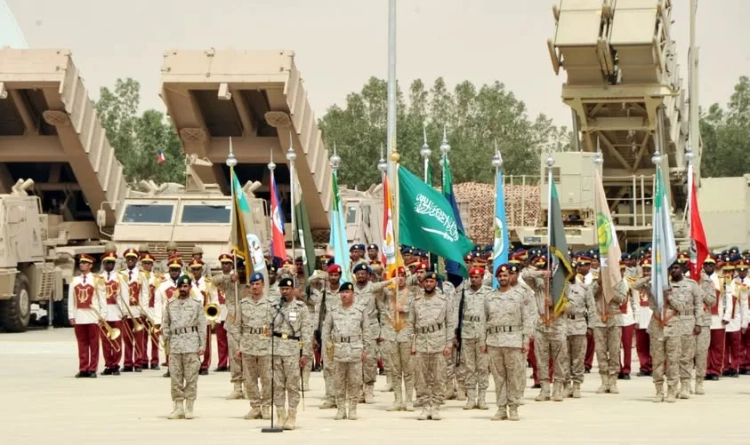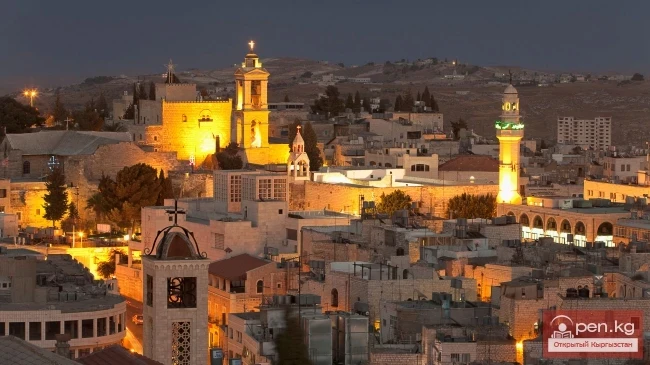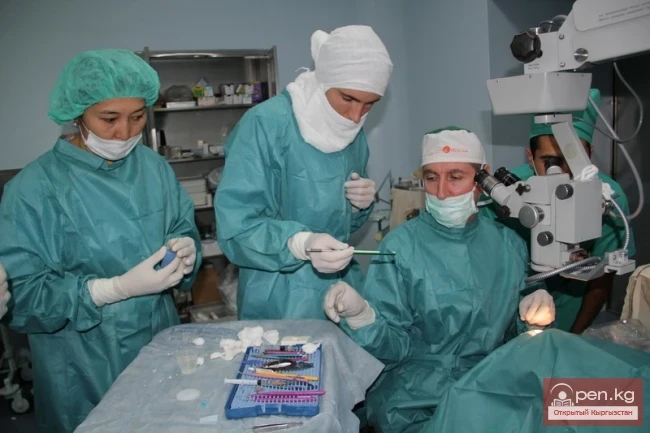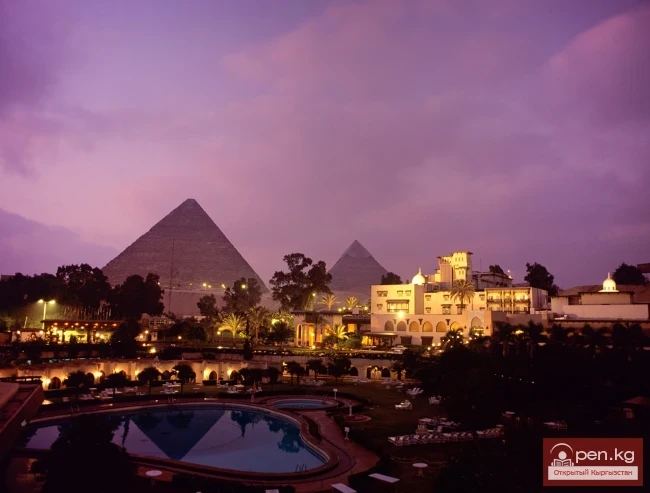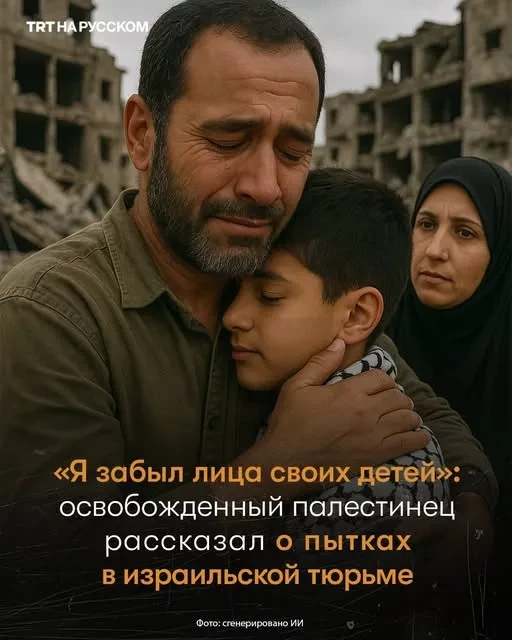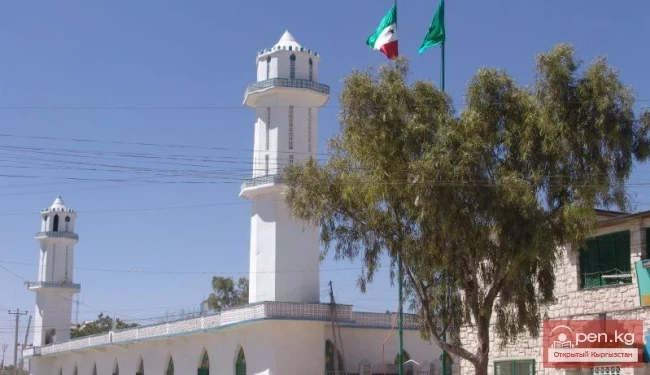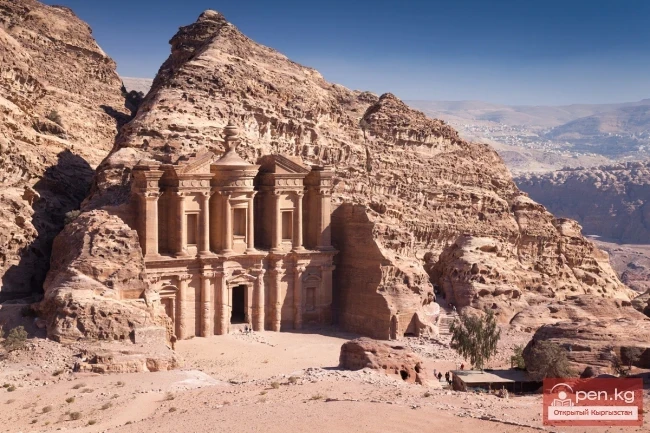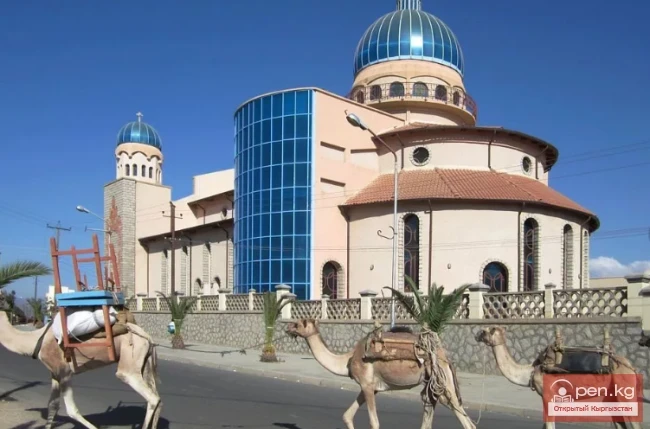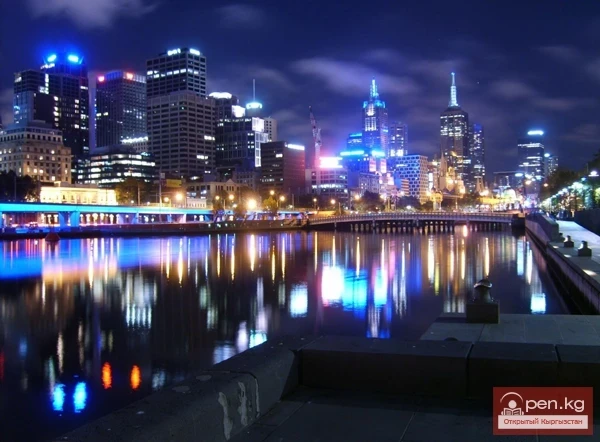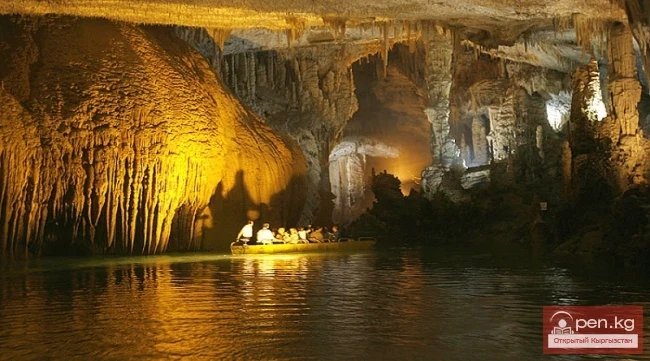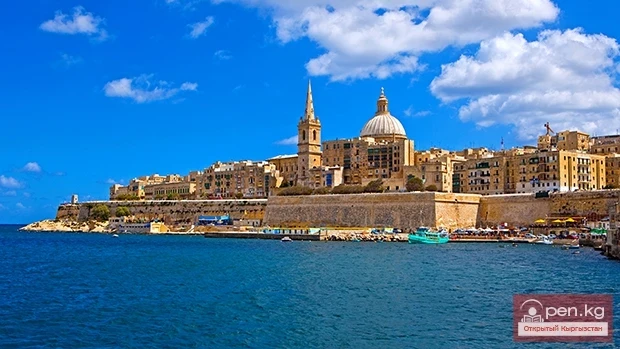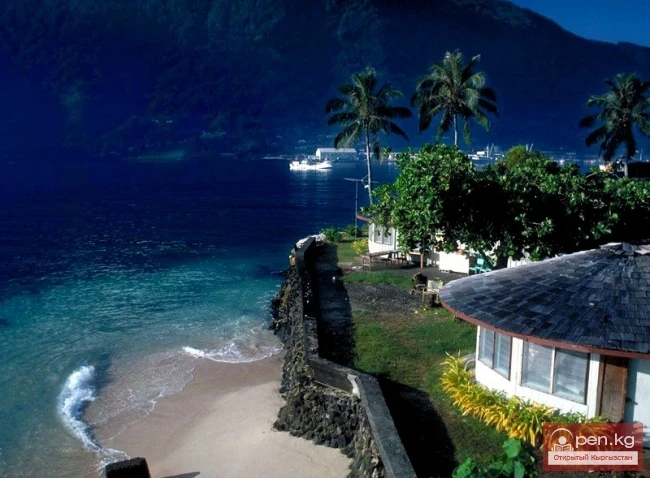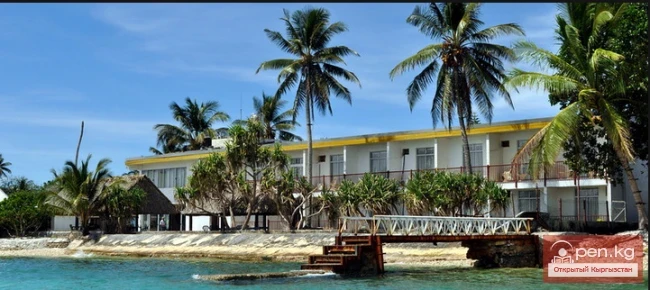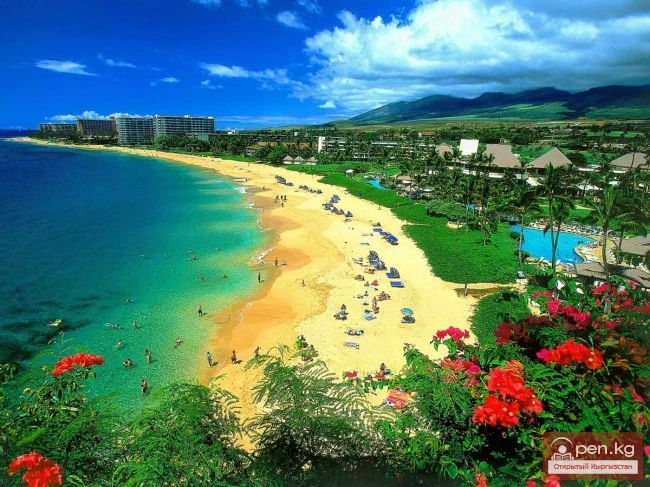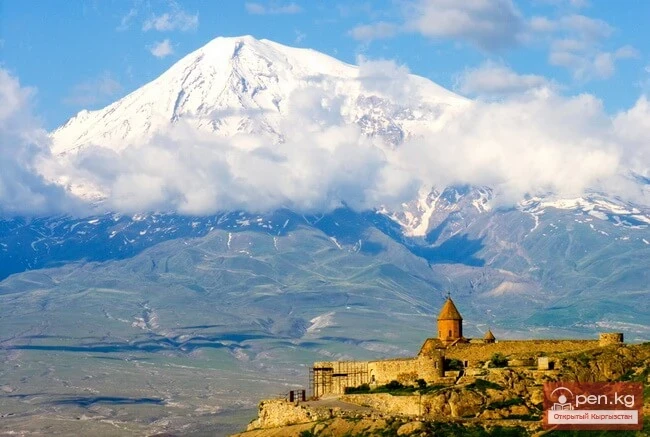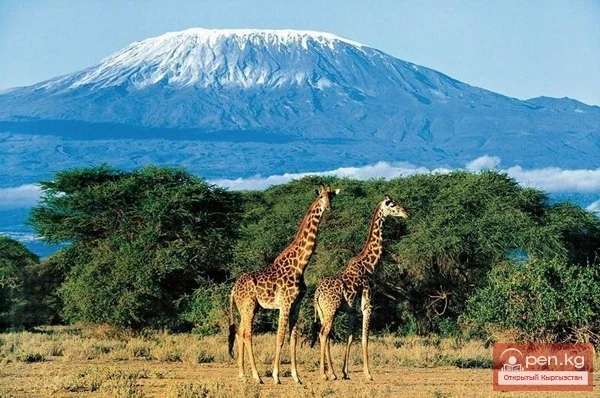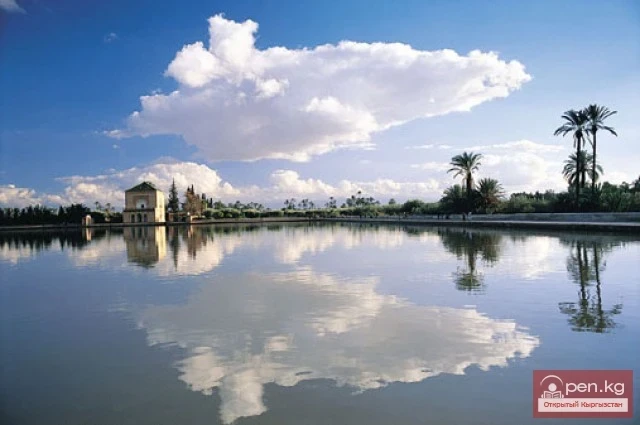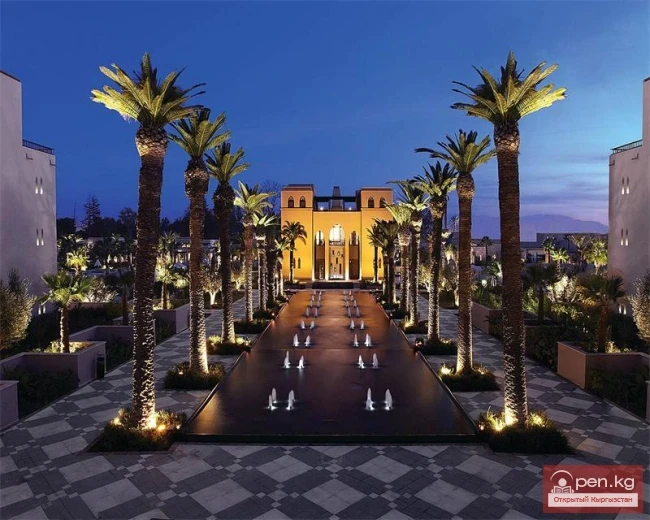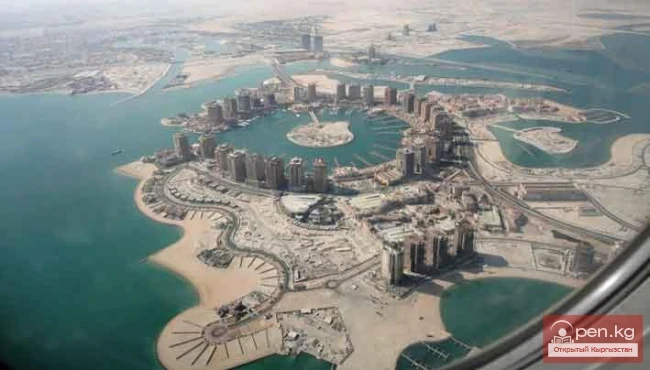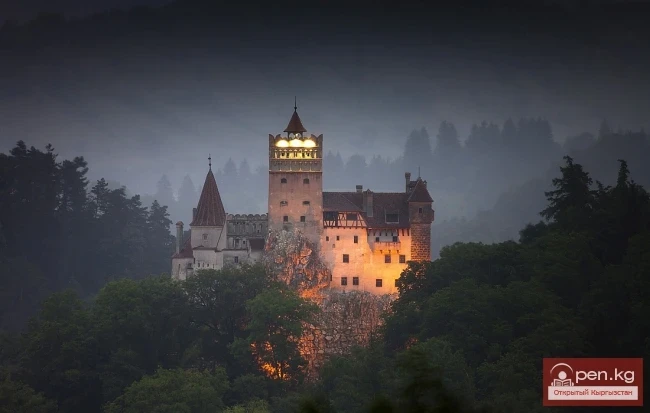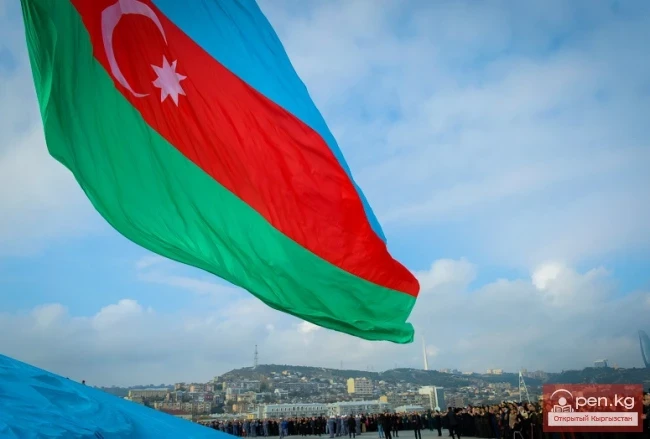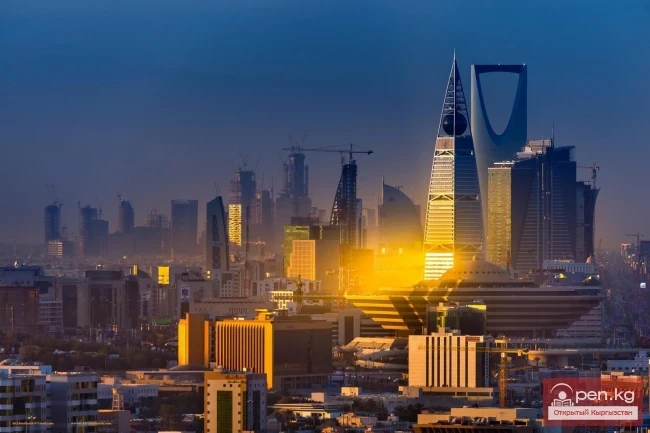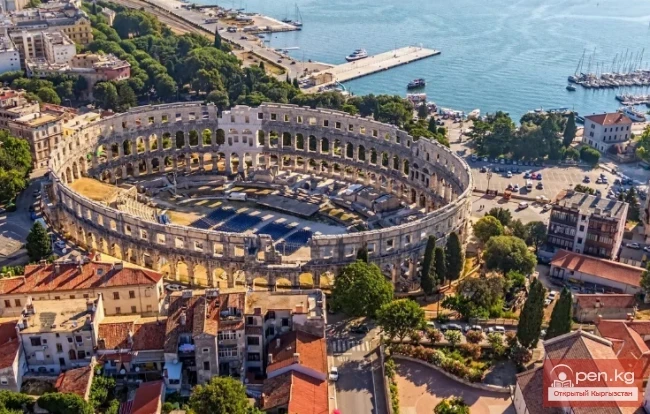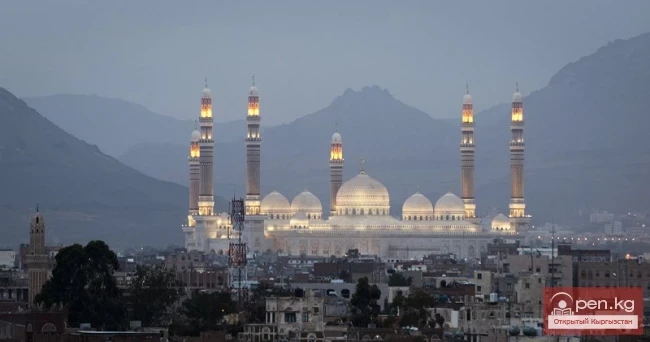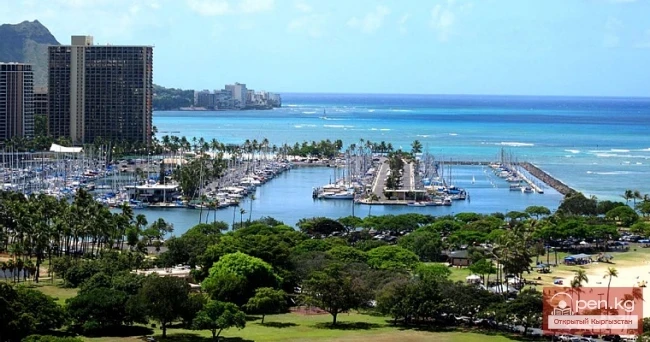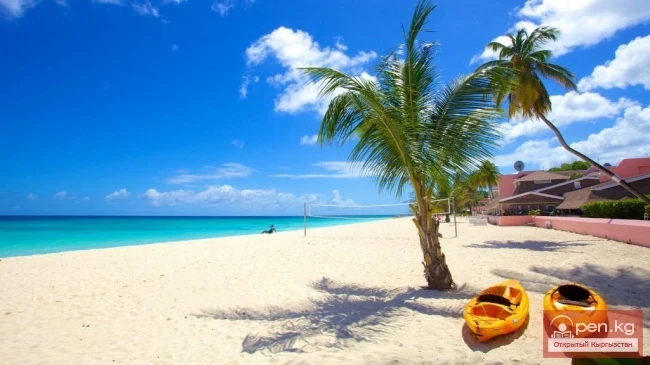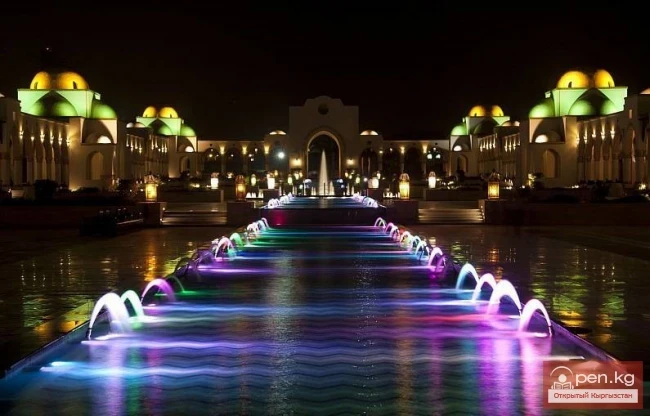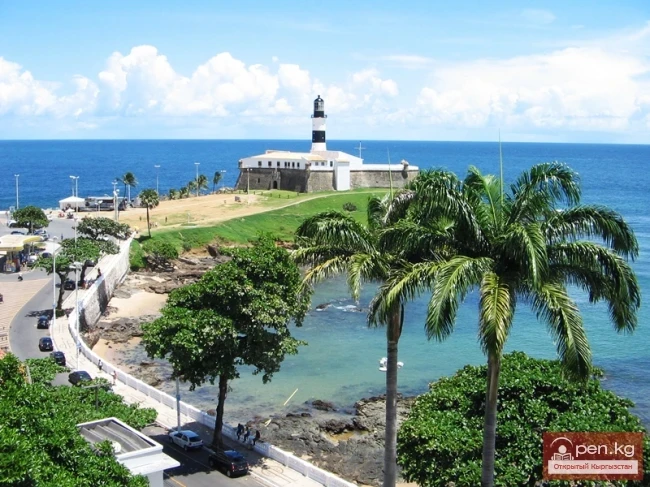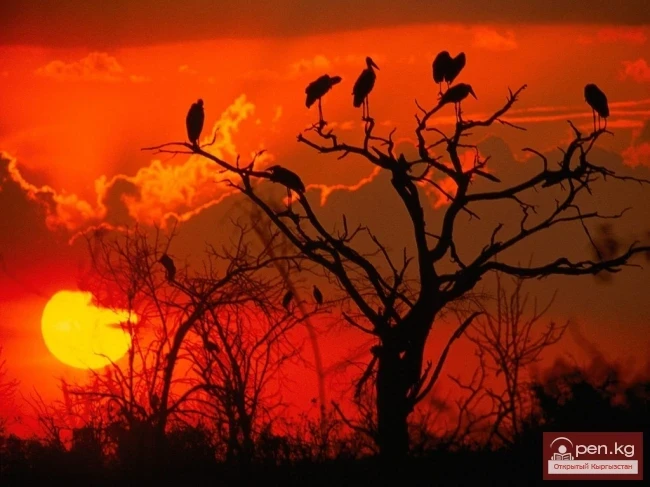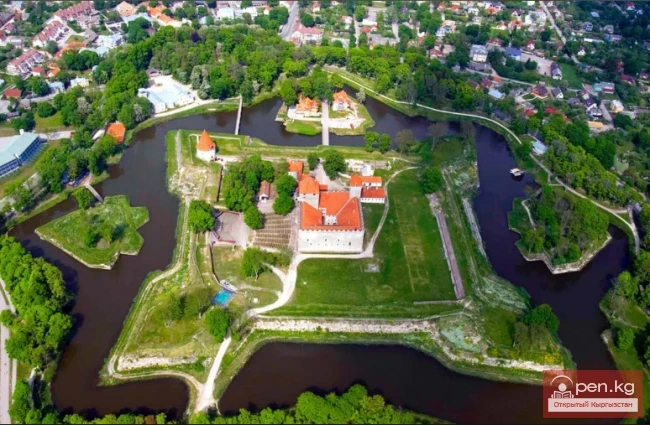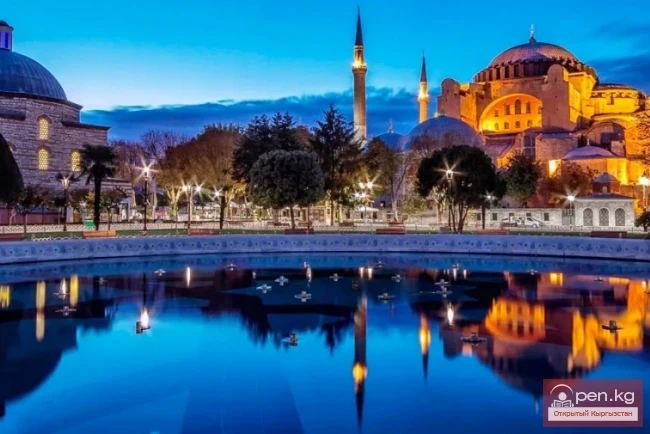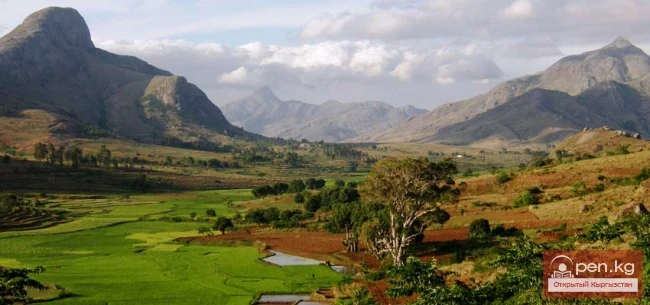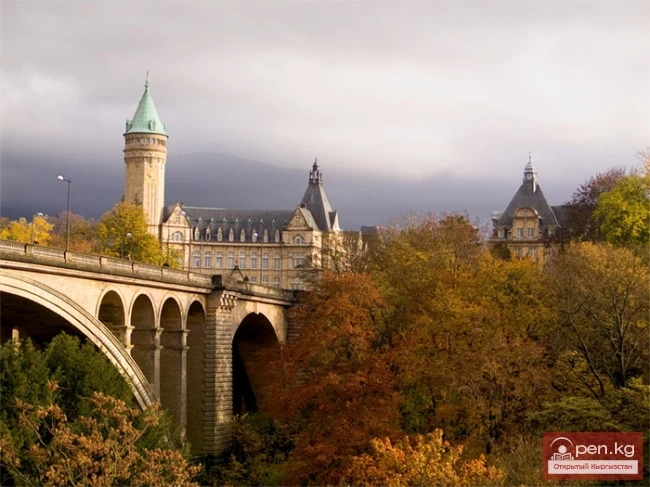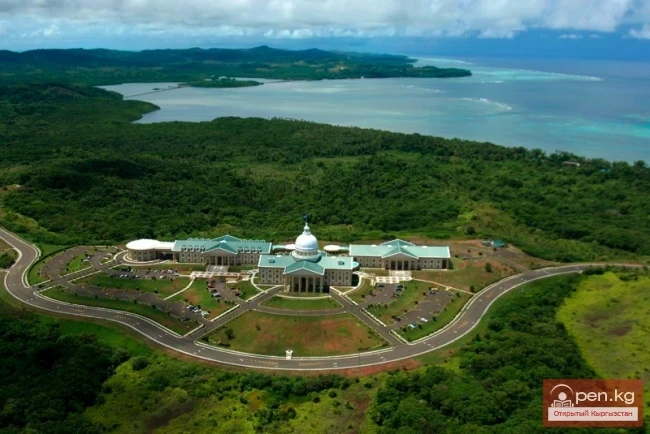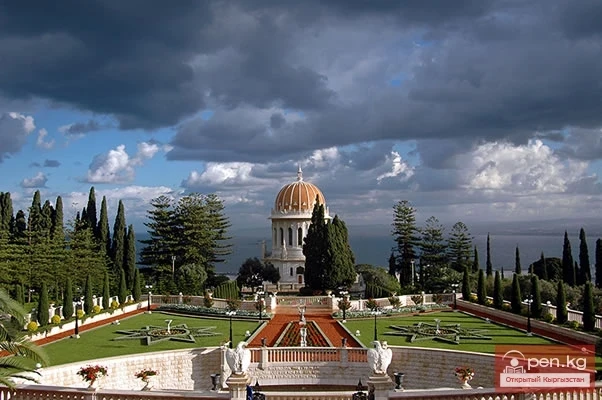
ISRAEL. State of Israel
The State of Israel is located in the Middle East on the southeastern coast of the Mediterranean Sea. The territory within the borders defined by UN General Assembly Resolution 181 in 1947 is 14.1 thousand km², and together with the territory annexed during the Arab-Israeli War of 1948-49, it is 20.7 thousand km². The largest cities are Jerusalem (over 680,000, of which nearly 240,000 are Arabs), Tel Aviv-Jaffa (360,000, with suburbs - over 2 million), and Haifa (270,000, with suburbs - 660,000). In 1950, contrary to the UN Resolution of 1947, the Israeli authorities declared Jerusalem the capital of the state, and in 1980, the Israeli parliament confirmed that Jerusalem, including the annexed part of the city from 1967, is the "eternal and indivisible capital of Israel." The UN Security Council recognized this decision as invalid.
Administratively, the country is divided into 6 districts. The population is 6.85 million (end of 2004), of which: Jews - 5.23 million (76%), Arabs - 1.34 million (19%), and the rest - Circassians, Druze, and representatives of other nationalities. The Jewish population has largely formed due to immigration. From 1989 to 2004, more than 1 million people immigrated to Israel from the states that emerged in the place of the USSR.
The official languages are Hebrew (ancient Hebrew) and Arabic. The religion of the majority of the population is Judaism, with Islam (20% of the population) and Christianity (about 2%) also being widespread. The currency is the new Israeli shekel = 100 agorot (4.35 shekels = 1 USD).
Israel has diplomatic relations with the Russian Federation. The USSR was one of the first countries to recognize Israel after its proclamation in 1948. Diplomatic relations between the two countries were severed in 1953, in 1956-57, and after the Arab-Israeli War of 1967. They were restored in October 1991.
The national holiday is Independence Day (1948) - the 5th of Iyar in the Jewish calendar (in 2005, it corresponds to May 12 in the Gregorian calendar, in 2006 - May 3).
Israel is a parliamentary republic. It does not have a constitution. Its place is taken by the fundamental laws of the state and individual legislative acts. The highest legislative body is the Knesset (a unicameral parliament of 120 deputies with 4-year terms). The last elections to the Knesset took place on January 28, 2003 (the speaker of the 16th Knesset - R. Rivlin). The head of state is a president elected by the Knesset for a 7-year term, who has representative powers (since 2000 - M. Katsav). The executive power is exercised by the government, which is formed by the leader of the party that won the elections based on the parliamentary majority. The government is headed by the prime minister (since February 2001 - A. Sharon). Since no Israeli party has managed to gain an absolute parliamentary majority (61 seats in the Knesset), all cabinets have been formed on a coalition basis. The coalition government formed in January 2005 includes representatives of the "Likud," "Labor," and "Torah Judaism" parties.
Political parties: The "Likud" Party ("Consolidation") - the successor to the "Likud" bloc, created in 1973 as a result of the merger of the "Herut" party, the Liberal Party, and several small parties and movements, has 40 seats in parliament, leader - A. Sharon. The Labor Party of Israel ("Avoda") - formed in 1968 on the basis of the existing labor party MAPAI since 1930 and two other social-democratic Zionist parties, has 19 mandates in the Knesset; party leader - Sh. Peres. In the 16th Knesset, the following parties are also represented: "Shinui" ("Change") - 15 seats (leader - Y. Lapid), Shas ("Sephardic Guardians of the Torah") - 11 seats (leader - E. Yishai), the "National Unity" bloc - 7 seats (leader - A. Lieberman), the Meretz bloc - 6 seats (leader - Y. Beilin), Mafdal (National Religious Party) - 5 seats (leader - E. Eitam), "Torah Judaism" - 5 seats (leader - Y. Litzman), Hadash (Democratic Front for Peace and Equality) - 4 seats (leader - M. Barakeh), "Am Echad" ("One People") - 3 seats (leader - A. Peretz), Balad (National Democratic Assembly) - 3 seats (leader - A. Bishara), United Arab List - 2 seats (leader - A. M. Dakhamshe).
The largest trade union association is "Histadrut" (General Federation of Labor in Israel), which owns banks, enterprises, insurance companies, etc.

